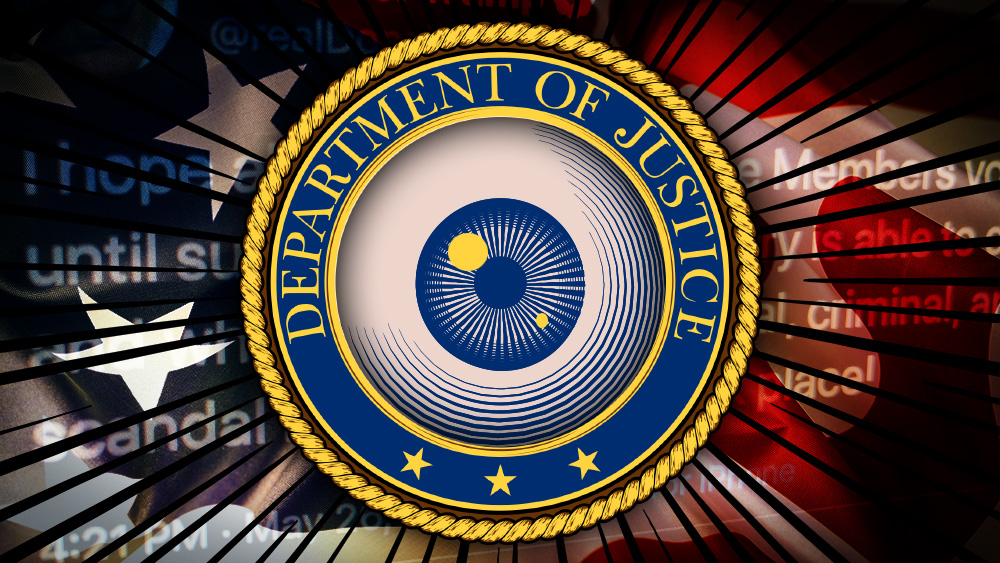
Trump tweet throws House surveillance debate into chaos
“I hope all Republican House Members vote NO on FISA,” the president wrote.
by Timothy B. LeePresident Donald Trump threw efforts to renew a controversial Patriot Act provision into turmoil on Tuesday evening with a tweet calling on Republican members of the House to reject spying legislation that is due for a vote this week. It's the latest setback for a bill that has been embroiled in controversy for months.
The provision, known as Section 215, was first passed in the wake of the September 11 terrorist attacks. It gives the federal government broad powers to obtain "any tangible thing," including "books, records, papers, documents, and other items," without a warrant.
This power isn't supposed to be used for ordinary criminal cases—only for foreign intelligence operations. But it has been subject to abuse in the past. Most notoriously, Section 215 was used to collect records of every phone call made in America for several years. The NSA ultimately terminated the program under sustained pressure from civil liberties groups.
Section 215 expired in March, and Congress has been working to renew it. The House of Representatives passed renewal legislation in March. The Senate passed its own version earlier this month. But the Senate version differed from the House version, necessitating another House vote before it can become law.
Privacy advocates have been pushing to modify the bill yet again. As we reported yesterday, the House is expected to vote on an amendment that would provide new privacy protections for Americans' search and browsing history records. A similar amendment in the Senate failed by a single vote; 59 senators voted in favor, just short of the 60-vote supermajority required to overcome a filibuster.
Trump adds confusion to the legislative fight
That brings us to last night, when President Trump called on Republicans to reject the legislation:
The "greatest political, criminal, and subversive scandal in USA history" is apparently a reference to accusations that the FBI acted inappropriately when it investigated associates of the Trump campaign during the 2016 election. Theoretically, Trump is now in charge of the FBI, CIA, and other intelligence agencies. But he has continued to view them with suspicion. He has become increasingly focused on these issues in recent months, coining the term "Obamagate" to describe his predecessor's alleged mishandling of investigations into Michael Flynn and other Trump associates.
The practical upshot of Trump's tweet is to make it less likely that any kind of Section 215 legislation will pass Congress. It seems unlikely that controversy over the 2016 campaign and related investigations will be resolved this year—so Trump is effectively calling for renewal of Section 215 to be put on hold indefinitely.
That's a stance that puts him at odds with a number of Republicans in Congress, including Senate Majority Leader Mitch McConnell. At the same time, Trump is not necessarily aligning himself with figures like Sen. Ron Wyden (D-Ore.) who have sought to add new privacy protections for search and browsing histories. It's not clear if Trump actually wants Section 215 permanently repealed or if he's just using the legislative debate as an excuse to tweet about one of his favorite subjects.
Something similar happened two years ago. In January 2018, the Trump White House was officially supporting legislation to renew another foreign surveillance power that was due to expire. But in the middle of the debate—possibly after watching a Fox News segment on the legislation—Trump posted a tweet contradicting the official White House line and suggesting that FISA powers had been used to spy on the Trump administration. A couple of hours later, after a frantic huddle with his national security advisers, Trump posted a follow-up tweet expressing support for the FISA legislation.
Wyden withdrew support for a House privacy amendment
Meanwhile, Sen. Wyden announced on Tuesday evening that he was withdrawing his support for the House search and browsing privacy amendment that's due for a vote this week. He had supported the amendment earlier in the day on Tuesday. But he changed his mind after Rep. Adam Schiff (D-Calif.), the chairman of the House Intelligence Committee and an ally of intelligence agencies, suggested that it would provide less robust protections for search and browsing privacy than Wyden had hoped.
Schiff's comments were significant because they came hours after Schiff had hashed out the text of the amendment with its lead co-sponsor, Rep. Zoe Lofgren (D-Calif.). Yesterday, we quoted a Lofgren statement claiming that the amendment would protect Americans from "incidental" collection of search and browsing records. But Schiff's own comments to The New York Times suggested a weaker interpretation of the text. And particularly given Schiff's role in drafting the text, Wyden worried that the courts would follow Schiff's reading of the amendment rather than Lofgren's.
Wyden is asking the House to vote on his own amendment—the one that got 59 votes in the Senate earlier this month. And if that amendment isn't added to the bill, he's asking the House to reject the entire package.
Privacy advocates have an unusual amount of leverage here. Normally, surveillance advocates try to push through renewals of spying legislation just before the previous legislation expires—a tactic that's difficult for opponents to counter given fears of terrorist attacks. But now that Section 215 has been expired for a couple of months, it's hard to create the same sense of urgency. If Congress does nothing, Section 215 will be gone forever. And that might suit privacy hawks in Congress just fine.